 2024 Digital Economy Academic Forum
2024 Digital Economy Academic Forum
The 2024 International Congress of Basic Science (ICBS) will take place in Beijing this July. The inaugural ICBS in 2023 was an extraordinary success, thanks to the support and participation of over 1000 scientists from more than 40 countries who gathered in Beijing to celebrate and honor the achievements of the global scientific community.
The 2024 Digital Economy Academic Forum (DEAF) is scheduled to be held at the Beijing Institute of Mathematical Sciences and Applications (BIMSA) on July 9, 2024, as a satellite conference of the ICBS. The focus of this forum is AI for Digital Economy. It will provide a platform for renowned experts and aspiring researchers to exchange insights and establish collaborations. The conference is hosted by the BIMSA and organized by the Digital Economy Laboratory of BIMSA.

Please scan the QR code and fill out the form to regist.
请扫描二维码并填写表格进行注册报名。
About BIMSA
Under the guidance and support of the Beijing Municipal Party Committee, the Beijing Municipal Government, and the Ministry of Science and Technology, Beijing Institute of Mathematical Sciences and Applications was officially established on June 12, 2020, spearheaded by the Beijing Municipal Science and Technology Commission and the Huairou District Party Committee and District Government.
Leveraging the relevant advantageous disciplines of Tsinghua University, such as mathematics, BIMSA follows a development model of “75% applied mathematics and 25% fundamental mathematics” and has been continuously advancing the construction of its research teams. Currently, it has successfully recruited more than 140 full-time research personnel, with foreign staff accounting for 36%. Fifteen members have been selected for national talent programs, and eight have been selected for provincial talent programs. BIMSA actively attracts top global scientists and promising young scholars, having formed 12 specialized research teams, with the future scale of research personnel expected to exceed 300 people.
BIMSA has built a platform for communication in the field of mathematics and its applications, strengthening fundamental scientific research and addressing mathematical problems in major national and corporate development needs. It has opened 327 public courses, hosted 76 international seminars, organized 64 workshops, held 1,672 academic lectures, and published renowned journals such as “The Advances in Theoretical and Mathematical Physics” and “ICCM Notices”. Up to June 2024 a total of 731 publications have been published or accepted, where 7 of them are books and 365 of them are indexed in SCI, among which 46.85% are in Q1 and 28.77% are in Q2.
BIMSA engages in multifaceted educational collaborations, cultivating outstanding research talents with innovative spirits and practical abilities. Currently, it jointly offers doctoral programs with Tsinghua University, the University of Chinese Academy of Sciences, and Renmin University of China, with the first cohort of students having officially enrolled in September 2023. Additionally, BIMSA collaborates with the Yau Mathematical Sciences Center at Tsinghua University, leveraging its resources and faculty to support the Tsinghua University Qiuzhen College’s “3+2+3” integrated bachelor’s, master’s, and doctoral training program, working together on student training.
About Digital Economy Laboratory
Digital technology, serving as the new symbolic application technologies of the information revolution era, is experiencing leapfrog development. This rapid progress is increasingly driving the evolution of the digital economy, intersecting and integrating with the three major industries of human society and overall social development. Digital science and technology have the power to transform the world and simultaneously undergoing transformation themselves. Narrowly defined, the digital economy can be understood as giving birth to an emerging economy through digital economization and enhancing the traditional economic model through economic digitization. Broadly speaking, it also extends to public services and social development.
The research scope of the Digital Economy Laboratory (DEL) is structured around three main areas: fundamental theoretical research, think tank research, and industrial incubation development. It encompasses studies on digital industries (the primary, secondary, and tertiary sectors of the national economy and their subdivisions) and digital regions (digital cities, digital free trade ports, digital bay areas, etc.), digital commerce (digital transactions, digital credit, digital risk control, digital enterprise empowerment, quantitative trading, digital supply chain finance, etc.), and digital governance, focusing on digital government. By integrating top-notch research resources and economic resources in fields such as applied mathematics, computer science, economics, finance, and public policy, it paves a way for the integrated development of academia, think tanks, and industry. Relying on and contributing to BIMSA, DEL actively engages with the world and serves the country.
DEL holds a leading position domestically and ranks among the best internationally in research areas such as the integration of basic and applied mathematics with economics, data trading and data elements based on Web 3.0, enterprise digital empowerment, digital governance, and quantitative trading. The laboratory regularly publishes the "China Digital Economy Index" and the "China Digital Economy White Paper". Its research in data trading, data elements, and data assets has entered the unicorn-level industrial application.
Program
Date: Tuesday, July 9, 2024
08:30-09:00
Registration (Library A7-2)
Forum Speech
Venue: Library A7-2; Zoom ID: 361 038 6975, Password: BIMSA
Chair: Fei Long (龙飞), BIMSA
09:00-09:10
Shing-Tung Yau (丘成桐), President of the BIMSA
09:10-09:20
Yaoping Jiang (蒋耀平), Former Vice Minister of Commerce of China
Morning Session: Digital Economy
Venue: Library A7-2; Zoom ID: 361 038 6975, Password: BIMSA
Chair: Fei Long (龙飞), BIMSA
09:20-10:00 IdopNetwork: How to Disentangle Complex Economics
Rongling Wu (邬荣领), BIMSA
10:00-10:20 Tea Break
10:20-11:00 A Statistical Approach to Automated Health Monitoring Using AIs
Kiranmoy Das, BIMSA
11:00-11:40 Teaching Economics to the Machines
Ke Tang (汤珂), BIMSA & Tsinghua University
11:40-11:50 Group Photo
11:50-13:00 Lunch
Afternoon Parallel Session 1: Digital Economy and Digital Finance
Venue: Library A7-2; Zoom ID: 361 038 6975, Password: BIMSA
Chair: Ke Tang (汤珂), BIMSA & Tsinghua University
13:00-13:40 Risk of Predictive Distributions and Model Comparison on Misspecified Model
Yong Li (李勇), Renmin University of China
13:40-14:20 Economic Narratives and Macroeconomic Forecasting
Fuwei Jiang (姜富伟), Xiamen University
14:20-15:00 A Tale of Fear and Euphoria in the Stock Market
Qian Lin (林乾), Wuhan University
15:00-15:20 Tea Break
15:20-16:00 The Contribution of Chinese Science to US Technological Advancement: Evidence from Patent Citation of Academic Papers
Yanbo Wang (王砚波), The University of Hong Kong
16:00-16:40 Managed Anonymity, Interest-bearing Rules of Central Bank Digital Currency and Economic Fluctuations
Tingfeng Jiang (姜婷凤), University of International Business and Economics
16:40-17:20 Machine Learning in Finance: Uncertainty Quantification, Generative Learning, Model Stability, and Their Applications
Xing Yan (严兴), Renmin University of China
Afternoon Parallel Session 2: Digital Economy and Machine Learning
Venue: Library A7-1; Zoom ID: 638 227 8222, Password: BIMSA
Chair: Liyan Han (韩立岩), BIMSA
13:00-13:40 Subsampling-based Random Projection Regression
Hongjun Li (李红军), Tsinghua University
13:40-14:20 Doubly Smoothed Density Estimation with Application on Miners’ Unsafe Act Detection
Hansheng Wang (王汉生), Peking University
14:20-15:00 Deep Learning Model Selection, Train and Test in Biomedical Applications
Xinqi Gong (龚新奇), Renmin University of China
15:00-15:20 Tea Break
15:20-16:00 Convection-Diffusion Equation: An axiomatized Framework for Neural Networks
Zuoqiang Shi (史作强), BIMSA & Tsinghua University
16:00-16:40 Joint Pricing and Inventory Management with Demand Learning
Yuan Zhou (周源), BIMSA & Tsinghua University
16:40-17:20 Reasoning on Knowledge Graph
Yunfeng Cai (蔡云峰), BIMSA
17:20-18:00 Park Tour
18:00-19:00 Dinner
Keynote Speakers

Shing-Tung Yau (丘成桐), President of the BIMSA. He is also the director of the Yau Mathematical Sciences Center at Tsinghua University and Professor Emeritus at Harvard University. Until 2022 he was the William Caspar Graustein Professor of Mathematics at Harvard, at which point he moved to Tsinghua. Yau was born in Swatow, Canton, Republic of China, moved to British Hong Kong at a young age, and then moved to the United States in 1969. He was awarded the Fields Medal in 1982, in recognition of his contributions to partial differential equations, the Calabi conjecture, the positive energy theorem, and the Monge–Ampère equation. Yau is considered one of the major contributors to the development of modern differential geometry and geometric analysis. The impact of Yau’s work are also seen in the mathematical and physical fields of convex geometry, algebraic geometry, enumerative geometry, mirror symmetry, general relativity, and string theory, while his work has also touched upon applied mathematics, engineering, and numerical analysis.

Yaoping Jiang (蒋耀平), Former Vice Minister of Commerce of China. Graduated from the Department of Foreign Languages of Guangxi University for Nationalities, Jiang received a master’s degree in Information Management from BI Norwegian School of Management and a doctor’s degree in Management Science and Engineering from Harbin Institute of Technology. He is a professorate senior engineer. Jiang served successively as Deputy Director and Director of the Telecommunications Bureau of Nanning, Deputy Director and Director of Posts and Telecommunications Administration of Guangxi Zhuang Autonomous Region, Director of the Office of the Computer Networks and Information Security Management of the Information Work Leading Group and Director General of the Department of Policies, Laws and Regulations of the Ministry of Industry and Information Technology. In April, 2004, Jiang was appointed Vice Minister and member of the CPC Leadership Group of the Ministry of Industry and Information Technology. In March 2008, Jiang was appointed Vice Minister and member of the CPC Leadership Group of the Ministry of Commerce.
Forum Talks

Speaker: Kiranmoy Das, BIMSA
Title: A Statistical Approach to Automated Health Monitoring Using AI
Abstract:
In recent years Internet of Things (IoT) devices are used for monitoring and controlling operations in urban and rural infrastructures including remote health monitoring. For remotely monitoring a patient only the health information at different time points is not sufficient, but the predicted values of the biomarkers (for future time points) are also required. In this article we propose a powerful statistical model for an efficient dynamic patient monitoring using wireless sensor nodes through Bayesian Learning (BL). A set of correlated biomarkers are measured from a patient over time where the sensors only report the ordinal outcomes (say; good, fair, high, very high) based on some prefixed thresholds. The challenge is to use these ordinal outcomes for monitoring and predicting the health status of the patient. We propose a linear mixed model where inter-biomarker correlations and intra-biomarker dependence are modeled simultaneously. The estimated and the predicted values of the biomarkers are transferred over internet so that the healthcare providers as well as the family members of the patient can remotely monitor the patient. Extensive simulation studies are performed to assess practical usefulness of our proposed joint model, and performance of the proposed joint model is compared to that of the other traditional models used in the literature.
Biography:
Prof. Kiranmoy Das obtained his PhD from The Pennsylvania State University, Statistics Department, and has taught in Temple University (USA), Presidency University (India), Indian Statistical Institute (India). He has published nearly 50 research articles in Statistics, Medical Sciences, Computer Science and Biology, has supervised 2 PhD and more than 30 MS students. His research interests include Bayesian modeling, Longitudinal data analysis, Biostatistics, Statistical Computing, Health Informatics. He has been awarded with Prof. C.R Rao National Award in Statistics by the government of India in 2021, and IISA Early Career Award in Statistics and Data Science by International Indian Statistical Association in 2023.
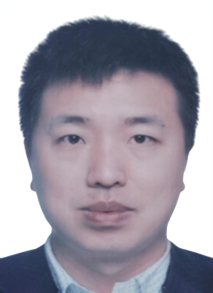
Speaker: Yunfeng Cai (蔡云峰), BIMSA
Title: Reasoning on Knowledge Graph
Abstract:
Abstract:
Knowledge graphs (KGs) consist of many facts that connect real-world entities with various relations. Due to the prevalence of relational data in practice, KG has a wide range of applications including recommendation systems, natural language processing (NLP) and question answering (QA), etc. In this talk, I will first present MQuadE, a embedding-based method for completing the KG. Experiments show that MQuadE outperforms the SOTA of embedding based methods. Then, I will introduce MLN4KB, an efficient Markov logic network (MLN) engine for large scale knowledge graphs. Experiments demonstrate that MLN4KB is orders of magnitudes faster than existing MLN engines. Lastly, I will combine embedding based with a relaxed version of MLN, which comes up with a neuro-symbolic reasoning engine called DiffLogic. On benchmark datasets, we empirically show that DiffLogic surpasses baselines in both effectiveness and efficiency.
Biography:
Yunfeng Cai obtained his PhD in Computing Mathematics at Peking University in Jan. 2009. From Jan. 2009 to June 2012, he worked as a postdoctoral researcher at the Academy of Mathematics and Systems Science / University of California, Davis. From Sep. 2012 to Sep. 2018, he served as a researcher at Peking University. In Sep. 2018, he joined Baidu Research as a Research Scientist and left on May 2024. In June 2024, he began his current role as a Professor at the Beijing Institute of Mathematical Sciences and Applications (BIMSA). His research interests include machine learning, reasoning, computer vision, tensor computing, etc.
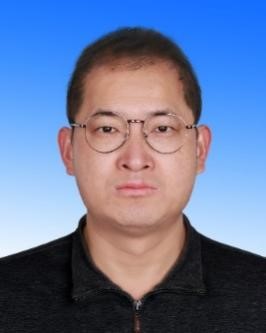
Speaker: Xinqi Gong (龚新奇), Renmin University of China
Title: Deep Learning Model Selection, Train and Test in Biomedical Applications
Abstract:
This talk will present a new perspective on revealing the selection, train and test approaches of deep learning methods in biomedical applications. First is a deep learning approach combining graph representation and neural networks for multi-mer protein interaction prediction. Second is using implicit neural networks to model the continuous time and space changes of protein dynamics. Third is a pre-trained big model for multiple purpose protein computations, which has been validated by experimental results. Our works will help to understand and develop artificial intelligence algorithms for diverse applications.
Biography:
Gong Xinqi, Distinguished Wu Yuzhang Professor and Doctoral Supervisor at Renmin University of China, Vice Dean of the Institute of Interdisciplinary Sciences, Director of the Department of Information and Computational Science at the School of Mathematics, Distinguished Researcher at Beijing Zhiyuan Artificial Intelligence Research Institute (2022-2024), Collaborative Researcher at the Beijing Center for Advanced Structural Biology at Tsinghua University (2019-2021). Vice Chairman of the Integrated Genomics Committee of the Chinese Botanical Society, Standing Committee Member of the Bioinformatics Committee of the Chinese Computer Society, Director of the Chinese Bioinformatics Society (preparatory), Director of the Computational Systems Biology Branch of the Chinese Operations Research Society, and Member of the Life Mathematics Committee and the Financial Technology Committee of the Chinese Industrial and Applied Mathematics Society. Engaged in research on bioinformatics and artificial intelligence mathematical algorithms, the HoDock / PAMA / UltraFold algorithm developed has performed well in protein complex prediction. More than 90 academic papers have been published on principles, algorithms, and applications, including 3 in Nature, 1 in Science, 2 in Nature Communications, and 1 in Nature Microbiology. Over 30 doctoral and master’s graduates have been trained, and more than 10 national key research and development projects have been undertaken.

Speaker: Fuwei Jiang (姜富伟), Xiamen University
Title: Economic Narratives and Macroeconomic Forecasting
Abstract:
We apply economic narratives to macroeconomic forecasting using a large news corpus and machine learning algorithms. We measure economic narratives quantitatively from the full text content of Wall Street Journal articles and articles represent them as interpretable news topics. The results indicate that narrative-based forecasts are more accurate than the benchmarks both in-sample and out-of-sample. Overall, we highlight the important role of economic narratives in economic forecasting.
Biography:
Fuwei Jiang is the tenured full Professor of Finance at the Department of Finance of School of Economics & Wang Yanan Institute for Studies in Economics (WISE), Xiamen University. He is used to be the full professor of finance and Department Chair of Financial Engineering at the Central University of Finance and Economics. He also holds the the MOE’s Changjiang Scholar professorship, Qiu Huabing Young Scholar professorship, Nanqiang Youth Talent Program (A Level), etc. His main research area lies in artificial intelligence (AI) for finance, FinTech, machine learning and asset pricing, textual analytics and behavioral finance, and Chinese markets. He has published more than 40 papers in top economic and financial journals such as the Journal of Financial Economics, Review of Financial Studies, Management Science, reprinted by Harvard Business Review, Tsinghua Financial Review, etc., and won many academic awards.

Speaker: Tingfeng Jiang (姜婷凤), University of International Business and Economics
Title: Managed Anonymity, Interest-bearing Rules of Central Bank Digital Currency and Economic Fluctuations
Abstract:
This study constructs a Dynamic Stochastic General Equilibrium (DSGE) model, incorporating a CBDC featuring managed anonymity and interest-bearing rules, to study the influence of CBDC issuance on economic fluctuations. We find that the introduction of CBDC, by affecting the automatic stabilizer function of taxation, can modulate short-term economic fluctuations. However, the effects hinge on the interest-bearing rules and anonymity degree of the CBDC. Specifically, introducing a managed anonymous CBDC, with interest rates pegged to policy rates, increases economic fluctuations caused by exogenous shocks. Thus, contrary to prevailing literature, the Taylor-like interest rule may not be optimal when considering managed anonymity. Furthermore, our findings reveal a non-linear, inverted U-shaped relationship between CBDC anonymity and the enhancement of social welfare. Based on these insights, we propose principles for optimizing CBDC design, and our quantitative analyses suggest that introducing such an optimized CBDC better regulates short-term economic fluctuations resulting from various exogenous shocks, thereby improving social welfare.
Biography:
Tingfeng Jiang is an Associate Professor and PhD Supervisor at School of Banking and Finance, University of International Business and Economics. She has been honored with the titles of National Young Talent, Beijing Excellent Young Talent, and UIBE Distinguished Scholar. She received her PhD in Economics at Tsinghua University, and was a visiting scholar at University of California, Berkeley. Her research interests include Digital Economy and FinTech. She has published over 20 papers in top Chinese and international journals, and has been leading the project of Internet-based Consumer Price Index (iCPI) since September 2015. Her research has been supported by the National Natural Science Foundation of China and the Beijing Office of Philosophy and Social Science.

Speaker: Hongjun Li (李红军), Tsinghua University
Title: Subsampling-based Random Projection Regression
Abstract:
In this paper, we propose a new method – subsampling-based random projection (SRP) regression – for analyzing datasets comprising a very large number of observations. The main advantage of this approach is that it only uses the sum information of each sub-sample, which greatly reduces the memory requirements of our procedure, enabling computation even on modest-sized laptop computers. We develop large sample theory for these estimators, and simulations demonstrate the good finite sample performance of our method. We also provide an application to a large dataset (comprising billions of observations) drawn from a mobile advertising platform.
Biography:
Hongjun Li is currently the Deputy Director and Associate Professor of the Institute of Economics at the School of Social Sciences, Tsinghua University, the Director of the Master’s Program in Digital Economy at the School of Social Sciences, Tsinghua University, the Deputy Director of the Computational Social Science Platform at Tsinghua University, and the Associate Editor of the Journal of Digital Economy. He graduated with a Ph.D. from Texas A&M University and mainly engages in theoretical and empirical research in the fields of non-parametric econometrics, machine learning, and industrial organization. He has led or participated in several national-level funded projects and has published numerous papers in economic journals such as the Journal of Econometrics, China Economic Review, Economics Letters, Econometric Reviews, and Empirical Economics.
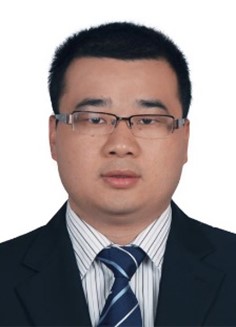
Speaker: Yong Li (李勇), Renmin University of China
Title: Risk of Predictive Distributions and Model Comparison on Misspecified Model
Abstract:
For misspecified models, from predictive viewpoint, generally, three are three different predictive distributions for candidate use, i.e., plug-in predictive distribution, the regular Bayesian predictive distribution, and the sandwich Bayesian posterior predictive distribution where the regular posterior distribution is substituted by sandwich posterior distribution proposed by Mu¨ller(2013) (Econometrica, 81(5), 1805-1849). First, on the basis of Kullback-Leibler (KL) loss function, we show that the sandwich Bayesian predictive distribution can yield lower asymptotic risk than the regular Bayesian predictive distribution. Those results extend the conclusion by Mu¨ller(2013) on the parameter estimation into the predictive distributions. Furthermore, we give the conditions that the sandwich Bayesian posterior predictive distribution is better or not than the plug-in predictive distribution. Second, under frequent risk analysis, based on these two Bayesian predictive distributions, we proposed some important information criterion for comparing misspecified models which can be unbiased estimators for the risks based on these two predictive distributions. Third, we established the relationship between the propose information criterion and the existing information criterion such as the popular AIC, TIC, and DICs, etc. At last, we illustrate the proposed new information criterion using some real studies in economics and finance.
Biography:
Dr Yong Li, Professor of Econometrics (PHD Supervisor), Yong Changjiang Scholar of Chinese Educational Admiration; Now he is the Associate Dean of School of Economics, and the chair of Department of Econometrics and Quantitative Economics. His research interest is Bayesian Financial Econometrics, Quantitative investment and Asset management. He published more than fifty academic papers in the international or domestic journals such as Journal of Econometrics, Economic Research, Management World, as well as two books Big data and Finance and Investment. Furthermore, his research has supported by several national science funds of China.
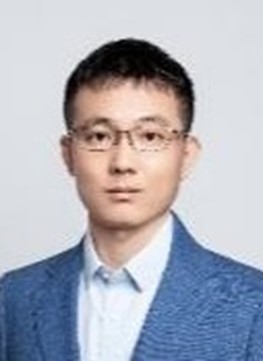
Speaker: Qian Lin (林乾), Wuhan University
Title: A Tale of Fear and Euphoria in the Stock Market
Abstract:
This talk proposes a consumption-based model to explain puzzling unstable, i.e., sometimes positive and sometimes negative, relations between stock market variance with both market risk premia and prices. In the model, market risk premia depend positively (negatively) on “fear” (“euphoria”) variance. Market prices, which decrease with discount rates, correlate negatively (positively) with fear (euphoria) variance. Because it is the sum of fear and euphoria variances, market variance may correlate positively or negatively with expected returns and prices, depending on the relative importance of the two variances. Our empirical results support model’s key assumptions and many novel implications.
Biography:
Qian Lin is a Professor of Finance at School of Economics and Management of Wuhan University. Prof. Lin got doctorates from Shandong University, China and Université de Bretagne Occidentale, France. Prof. Lin was a postdoctoral fellow at Bielefeld University, Germany. Prof. Lin has published 22 papers in many academic journals, such as Journal of Financial and Quantitative Analysis, Mathematical Finance, Journal of Economic Dynamics and Control, Economic Theory, Quantitative Finance, Stochastic Processes and their Applications, Science China Mathematics, Advances in Applied Probability.
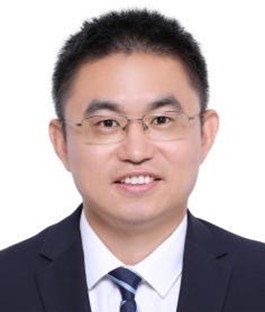
Speaker: Zuoqiang Shi (史作强), BIMSA & Tsinghua University
Title: Convection-Diffusion Equation: An axiomatized Framework for Neural Networks
Abstract:
Bridging neural networks with partial differential equations holds significant importance, as it not only enhances the interpretability of neural networks but also sheds light on designing network architectures. In this talk, we establish convection-diffusion equation models based on rigorous theoretical analysis. The convection-diffusion equation model not only covers existing network structures, but also illuminates novel network design, COnvection dIffusion Networks (COIN). Numerical results demonstrate the effectiveness of COIN in various benchmarks, as well as its potential in novel tasks such as disease prediction.
Biography:
Zuoqiang Shi is currently a Professor in the Yau Mathematical Sciences Center at Tsinghua University and a Joint Professor in the Beijing Institute of Mathematical Sciences and Applications. He got PhD from Tsinghua University in 2008 and joined Yau Mathematical Sciences Center in 2011. His main research areas include numerical methods for partial differential equations, differential equation models for image processing and machine learning, time-frequency analysis for nonlinear and nonstationary data, etc. He has published over 70 papers in international top journals such as Applied and Computational Harmonic Analysis, SIAM Journal on Scientific Computing, SIAM Journal on Imaging Sciences, Advances in Mathematics, Archive for Rational Mechanics and Analysis, etc.

Speaker: Ke Tang (汤珂), BIMSA & Tsinghua University
Title: Teaching Economics to the Machines
Abstract:
Structural models in economics can offer appealing insights but often suffer from a poor fit with the data. In contrast, machine learning models offer rich flexibility but tend to suffer from over-fitting. We propose a novel framework that incorporates useful economic restrictions from a structural model into a machine learning model through transfer learning. The core idea is to first construct a neural-network representation of the structural model, and then update the network using information from real data. In an example application to option pricing, our hybrid model significantly outperforms both the structural model and a conventional deep-learning model. The out-performance of the hybrid model is more significant when the sample size of real data is limited or under volatile market conditions.
Biography:
Ke Tang is a Professor at the Institute of Economics and the Dean of Zhishan College at Tsinghua University. He also serves as an adjunct professor at the Beijing Institute of Mathematical Sciences and Applications (BIMSA). His primary research areas include commodity markets (including data elements), Fintech, and digital economy. He has authored numerous papers in reputable journals such as the Journal of Finance, Review of Financial Studies, Management Science, and PNAS. Currently, he holds the positions of Executive Editor of the Quantitative Finance, Associate Editor of the Journal of Commodity Markets and the China Journal of Economics, and Field Editor of the Journal of Management Sciences in China. His research contributions have been acknowledged by the U.S. Commodity Futures Trading Commission, United Nations Commodity Reports, and various media outlets. He has been recognized as one of Elsevier’s Highly Cited Chinese Scholars from 2020 to 2023.

Speaker: Hansheng Wang (王汉生), Peking University
Title: Doubly Smoothed Density Estimation with Application on Miners’ Unsafe Act Detection
Abstract:
The mining industry is one of the most dangerous industries worldwide. Typical accidents include but are not limited to gas explosions, floods, and derailing. Unfortunately, most of these accidents are associated with human errors, often due to miners’ unsafe acts. Thus, timely monitoring and correcting miners’ unsafe acts is of great importance for safety assurance. To this end, we develop here a double smoothing kernel estimation method. It takes high-resolution images as inputs and then detects miners in the images automatically. Compared with the classical kernel density estimator, the new method contains two layers of nonparametric kernel smoothing. We show theoretically that the resulting density estimator enjoys a much improved statistical efficiency, but also suffers from high computational cost. To speed up the computation, a grid point approximation (GPA) method is further developed. Once a miner is detected in the image, a pre-trained MobileNet model (i.e., a classical deep learning model based on convolutional neural networks) can be used to extract feature vectors. Based on the extracted feature vectors, a standard logistic regression model can be trained to classify the miners’ acts into safe or unsafe categories. The resulting out-of-sample prediction accuracy is excellent.
Biography:
Hansheng Wang, Professor of Business Statistics at Guanghua School of Management, Peking University. Founding President of Chinese Statistical Association of Young Scholars. He received B.S. in Statistics (1998) from Department of Probability and Statistics, School of Mathematical Science, Peking University, and Ph.D. in Statistics (2001) from Department of Statistics, University of Wisconsin-Madison. Elected Member of International Statistical Institute. Fellow of American Statistical Association. Fellow of Institute of Mathematical Statistics. Serving (or having served) as an Associate Editor for Science China: Mathematics, The Annals of Statistics, Journal of the American Statistical Association, Journal of Business and Economics Statistics, Computational Statistics & Data Analysis, Statistica Sinica,Statistics and its Interface, Stat, Journal of Data Science, Statistical Theory and Related Fields, and Quarterly Journal of Economics and Management (in Chinese).

Speaker: Yanbo Wang (王砚波), The University of Hong Kong
Title: The Contribution of Chinese Science to US Technological Advancement: Evidence from Patent Citation of Academic Papers
Abstract:
We study the contribution of Chinese science to US technology, as evidenced by patent citation of scientific publications. Our analysis documents that foreign science is prevalent in US patents, with China emerging as a leading foreign producer of science cited in US patents. In 2020, nearly 30% of US science-reliant patents referenced articles published by Chinese scholars, representing a five-fold increase compared to 2000. While Chinese science has predominantly played a supplementary role in US technological advancement, we observe that in nearly 15% of US patents citing Chinese science, China serves as the primary source of referenced scientific knowledge. Furthermore, the influence of Chinese science is not limited to US innovators, as approximately 14% of USPTO-granted foreign, science-reliant patents have referenced Chinese science.
Biography:
Yanbo Wang is an Associate Professor of Strategy and Innovation at the University of Hong Kong. He conducts research on technology-based entrepreneurship, with a particular focus on the impact of institutions on startup firms’ strategic choices, organizational forms and financial performance. His current projects map the entrepreneurial landscape in China and examine the design and effect of the country’s state innovation subsidy programs. Dr. Wang has published in peer-reviewed academic journals such as Management Science, Research Policy, Strategic Management Journal and Administrative Science Quarterly. He serves on the editorial board of Administrative Science Quarterly and Strategic Management Journal. Dr. Wang received BA in international relations from Peking University and Ph.D. in Management from MIT. Prior to HKU, he has taught at Boston University, Cheung Kong Graduate School of Business and the National University of Singapore, where he served as a doctoral program director in strategy and policy.

Speaker: Rongling Wu (邬荣领), BIMSA
Title: IdopNetwork: How to Disentangle Complex Economics
Abstract:
The economy can be considered as a complex adaptive system in which the agents interact with each other in a complicated manner, making it incapable to deduce the behavior of the aggregate from the behavior of the average, or “representative” individual. In this talk, I will be presenting an emerging tool to reconstruct informative, dynamic, omnidirectional, and personalized networks (idopNetwork) from a population of economic data. idopNetwork provide a platform to explore systematically not only the internal complexity of a particular economy, leading to the identification of key modules and pathways, but also the mechanistic relationships among apparently distinct economic units. This tool can address how the economy or a market self-organizes, how this self-organization is affected by individual decisions in the economy and how the economy changes from state to state. Advances in network modeling are essential for disentangling economic complexity and functioning. Joint work with Yu Wang.
Biography:
Rongling Wu is Research Fellow at Beijing Institute of Mathematical Sciences and Applications (BIMSA). His academic trajectory is contextualized on three distinct milestones, a biologist, a statistician, and a growing applied mathematician. As a field biologist, he selected and bred superior tree varieties for improving the economy and environment. When his interest migrated to statistics, he invented functional mapping which is now a mainstream approach for modern genetic and genomic research in the era of big data. His more consolidated and meaningful academic development starts after he joined BIMSA, where he cross-pollinates his biological and statistical knowledge to mathematics from his peers. He is fully confident of growing himself into an applied mathematician, equipped with a capacity to establish the mathematical foundation of artificial intelligence and complexity science.

Speaker: Xing Yan (严兴), Renmin University of China
Title: Machine Learning in Finance: Uncertainty Quantification, Generative Learning, Model Stability, and Their Applications
Abstract:
AI in Finance is a fascinating cross-disciplinary area. However, a significant gap exists between these two domains, characterized by distinct cultures and objectives. In this presentation, our goal is to bridge this gap by highlighting the unique aspects of machine learning in finance and introducing novel methodologies with successful applications. We will cover three key topics: uncertainty quantification, generative learning, and model stability in finance. We contend that end-to-end black-box models are generally ineffective in this context. Instead, models elaborately designed to capture the natures of financial data, such as uncertainty, dependency structures, and tail properties, are more likely to succeed. The methodologies we have proposed achieve state-of-the-art performance in tasks such as risk forecasting and portfolio construction.
Biography:
Xing Yan is an Assistant Professor in the Institute of Statistics and Big Data, Renmin University of China. Dr. Yan obtained his Ph.D. degree from Department of SEEM (financial engineering field), Chinese University of Hong Kong in 2019. He also received a master’s degree in computer science from Institute of Computing Technology, Chinese Academy of Sciences, and a bachelor’s degree in pure mathematics from Nankai University. Dr. Yan works at the intersection of machine learning and finance/business. His research papers have been published in journals/conferences in both two communities, such as IEEE TPAMI, IEEE TNNLS, European Journal of Operational Research, Journal of Economic Dynamics and Control, NeurIPS, AAAI, ECCV, ICAIF, etc.

Speaker: Yuan Zhou (周源), BIMSA & Tsinghua University
Title: Joint Pricing and Inventory Management with Demand Learning
Abstract:
In the problem of joint pricing and inventory management the retailer makes simultaneously a price decision and an inventory order-up-to decision at the beginning of each review period. The demands are being modeled as either a parametric or nonparametric function depending on the prices.
In this talk, I will introduce two of my recent works advancing this problem: the first one deals with fixed ordering costs under the backlogging setting, with a parametric (generalized linear) demand model. The second one studies nonparametric demand models with censored demands and lost sales. The techniques involved include a novel UCB analysis over trajectories of (s,S,p) policies, and a noisy comparison oracle constructed for censored demand models.
This talk is based on the following two papers:
[1] Chen, Boxiao, David Simchi-Levi, Yining Wang, and Yuan Zhou. “Dynamic pricing and inventory control with fixed ordering cost and incomplete demand information.” Management Science 68, no. 8 (2022): 5684-5703.
[2] Chen, Boxiao, Yining Wang, and Yuan Zhou. “Optimal policies for dynamic pricing and inventory control with nonparametric censored demands.” Management Science 70, no. 5 (2024): 3362-3380.
Biography:
Dr. Yuan Zhou is an Associate Professor at the Yau Mathematical Sciences Center, Tsinghua University and a Joint Professor in the Beijing Institute of Mathematical Sciences and Applications. Before joining Tsinghua, he was an Assistant Professor at the University of Illinois Urbana-Champaign, an Assistant Professor at Indiana University Bloomington, and an Applied Mathematical Instructor at the Massachusetts Institute of Technology. He obtained his Ph.D. in Computer Science from Carnegie Mellon University. Dr. Zhou’s research interests include but are not limited to online learning and decision making (e.g., bandits and reinforcement learning), combinatorial optimization, and their applications to operations research and management problems such as dynamic pricing, inventory control, assortment optimization, etc. He currently serves as an Associate Editor for Operations Research and Operations Research Letters.
Map of BIMSA
Address: No. 544, Hefangkou Village, Huaibei Town, Huairou District, Beijing
地址:北京市怀柔区怀北镇河防口村544号北京雁栖湖应用数学研究院
Forum Venue: A7
Lunch and Dinner Venue: A16

Forum Chair

Fei Long (龙飞), PI and Director of the Digital Economy Laboratory, Vice President of BIMSA, received his PhD from the School of Government in Peking University and was a Post Doctoral Fellow at the Department of Economics in Harvard University. He has rich working experiences at various organizations and institutions, including Development Research group of the World Bank, the Institute of Social Science at the University of Tokyo, and the Far Eastern Branch of the Russian Academy of Sciences, etc. He boasts an extensive academic knowledge, teaching economics and management courses or advanced training courses at Peking University, Tsinghua University, Harvard University, and other institutions. He has served as a senior advisor for the China Energy and Environmental Research Society at MIT, Vice Mayor of the People’s Government of Shigatse city, Tibet Autonomous Region, and Vice Chairman of Tibet Autonomous Region Tourism Bureau. And his research focusing on digital economy, digital governance, digital finance, and complex networks.
Forum Vice Chair

Liyan Han (韩立岩), Professor at Beijing Institute of Mathematical Sciences and Applications, Digital Economy Laboratory. He once worked as a chief professor of economics in Beihang University for 20 years. He was awarded as Beijing Renowned Teacher, Distinguished Fellow in Chinese Quantitative Economics, and Special government allowances of the State Council. His doctorate research focused on fuzzy information and knowledge engineering in 1990s, and now his research interests focus on Fintech, foreign exchange rate combined with monetary policy, and green finance as well.

Qingfu Liu (刘庆富) , Professor in Finance at School of Economics, Fudan University. And adjunct professor at Beijing Institute of Mathematical Sciences and Applications (BIMSA). He is currently the executive director of Fudan-Stanford Institute for China Financial Technology and Risk Analytics. And the academic vice director of Fudan-Zhongzhi Institute for Big Data Finance and Investment, and the deputy director of Shanghai Financial Big Data Joint Innovation Laboratory. His main interests include financial technology, quantitative trading, risk management, and big data finance. Also, he has published more than 100 papers, including Journal of Econometrics, Journal of International Money and Finance, and Quantitative Finance.

Ke Tang (汤珂), Professor at the Institute of Economics and the Dean of Zhishan College at Tsinghua University. He also serves as an adjunct professor at the BIMSA. His primary research areas include commodity markets (including data elements), Fintech, and digital economy. He has authored numerous papers in reputable journals such as the Journal of Finance, Review of Financial Studies, Management Science, and PNAS. Currently, he holds the positions of Executive Editor of the Quantitative Finance, Associate Editor of the Journal of Commodity Markets and the China Journal of Economics, and Field Editor of the Journal of Management Sciences in China. He has been recognized as one of Elsevier’s Highly Cited Chinese Scholars from 2020 to 2023.
Forum Secretary
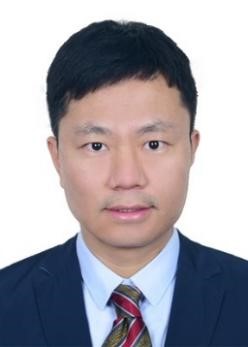
Zhen Li (李振), Assistant Professor at the BIMSA. He was a postdoctoral fellow from 2020-2022 at the School of Data Science, Fudan University, and an assistant research fellow from 2013-2016 at the Chongyang Institute for Financial Studies, Renmin University of China. Dr. Li received his Ph.D. in Finance, M.A. in Statistics, and B.A. in Finance from the Renmin University of China, and his B.E. in Software Engineering from Nanjing University. He was a visiting scholar from 2019-2020 at the School of Business, George Washington University. His current research focuses on banking, and he has published more than 40 articles in some important academic journals.
Assistants
- Binbin Yan (颜斌斌), BIMSA & Tsinghua University
- Ruize Gao (高瑞泽), BIMSA & Tsinghua University
- Yu Wang (王玉), BIMSA & Tsinghua University
- Manyao Deng (邓曼瑶), BIMSA & Macau University of Science & Technology
- Junda Wu (吾俊达), BIMSA & University of the Chinese Academy of Sciences
- Shujie Wang (王淑婕), BIMSA & University of the Chinese Academy of Sciences
- Xueda Wei (危学达), BIMSA & Renmin University of China
Administrative Support
- Guangqiang Tie (铁广强), BIMSA